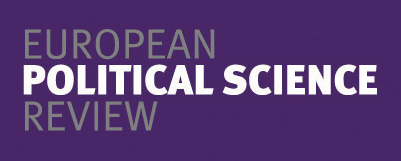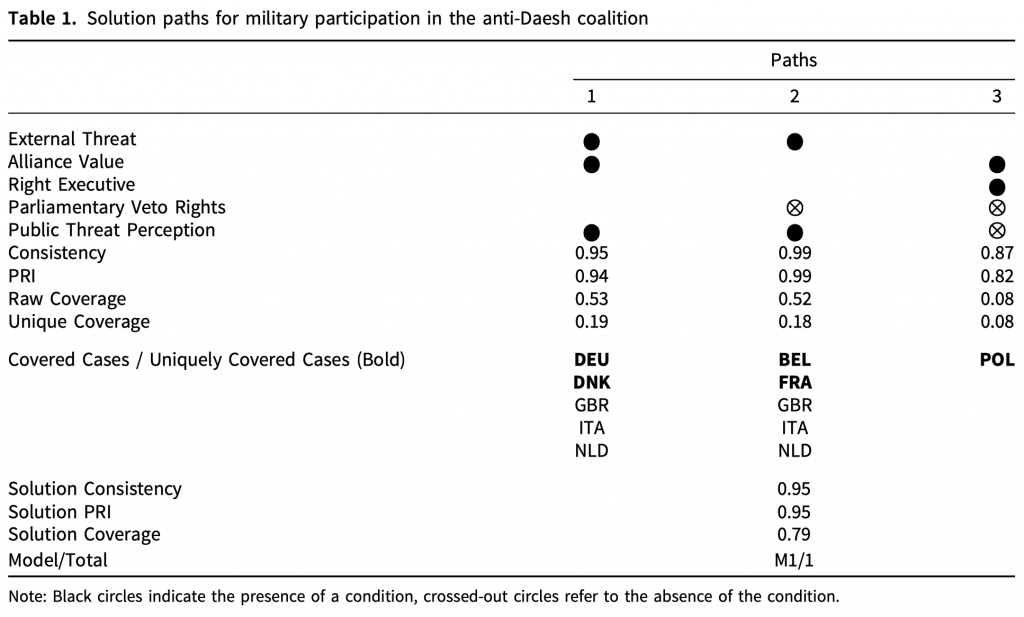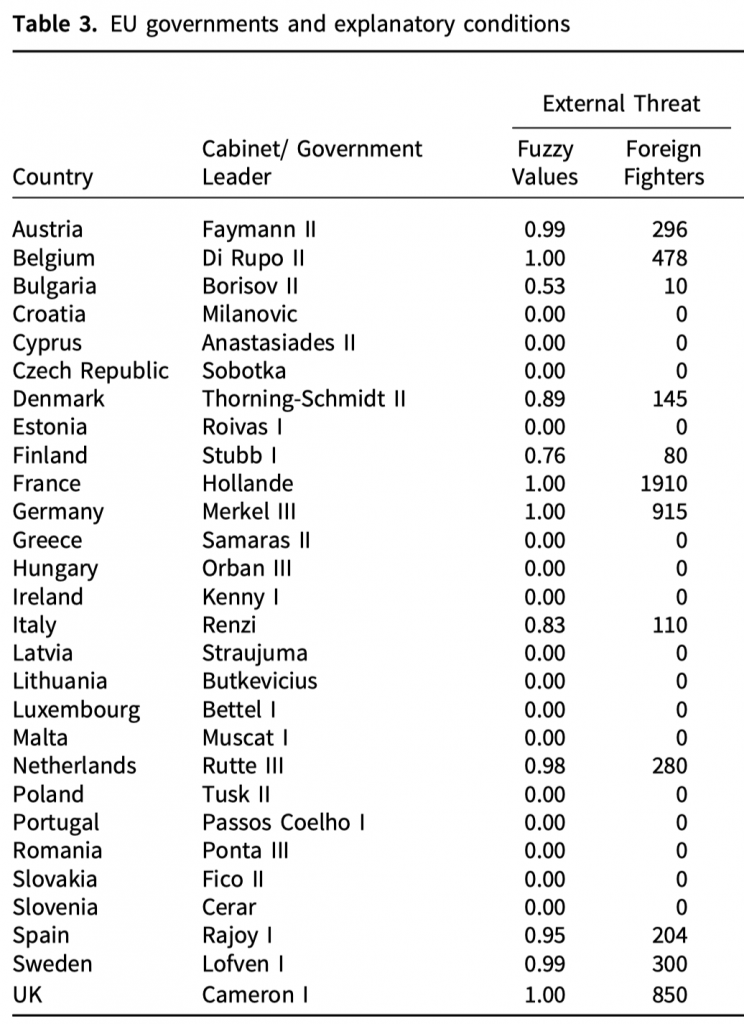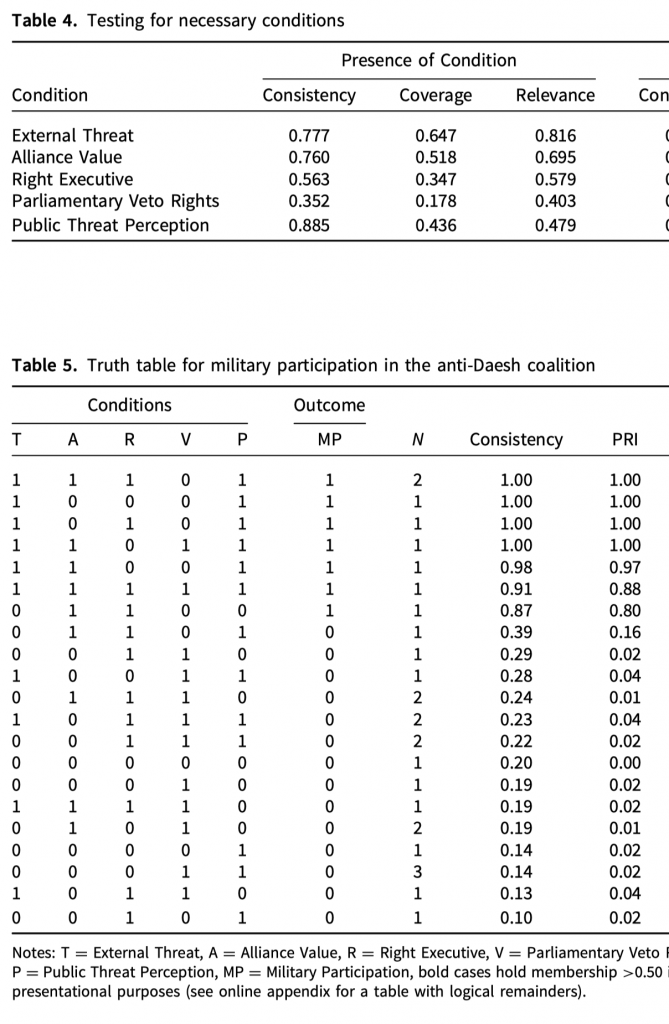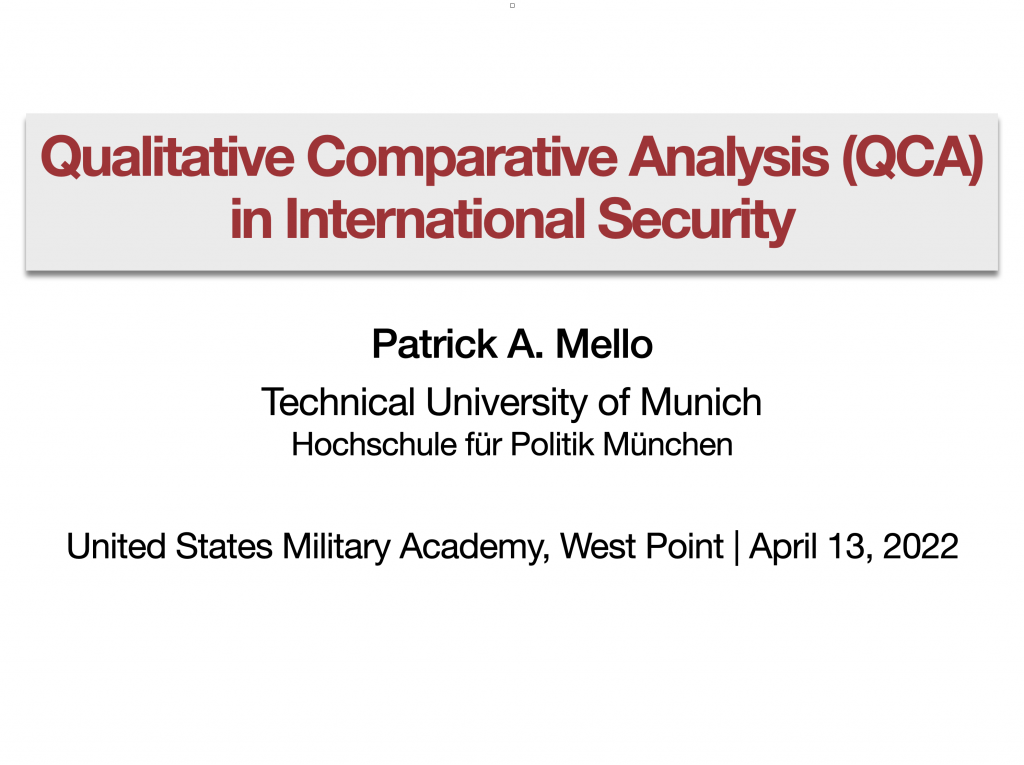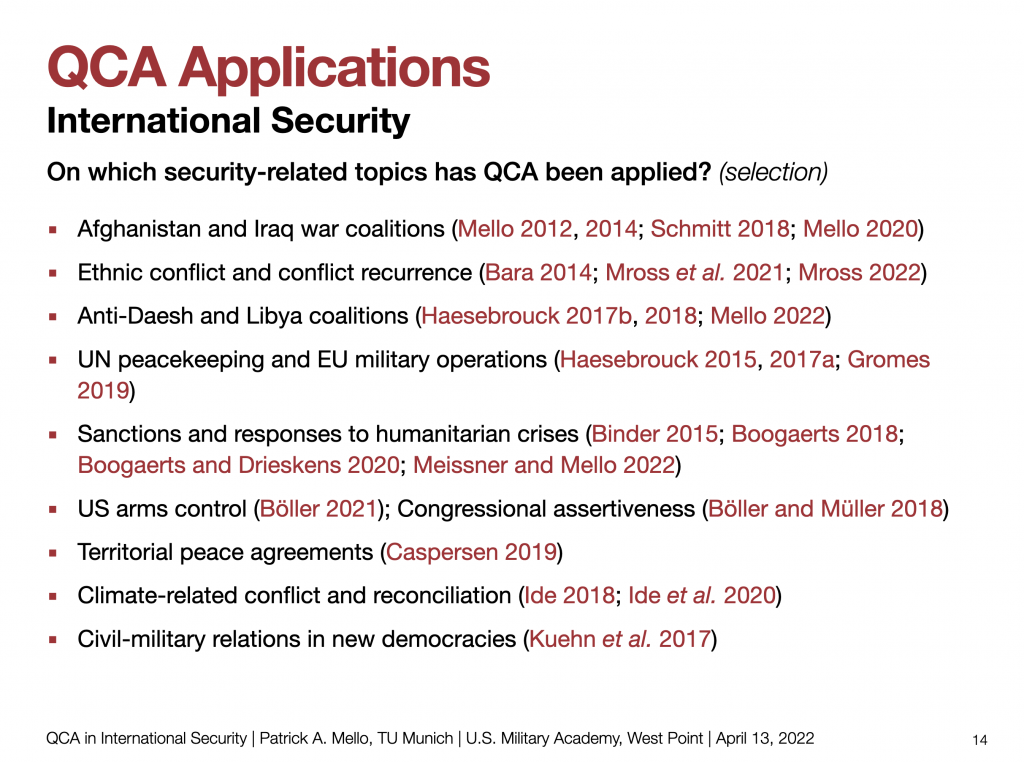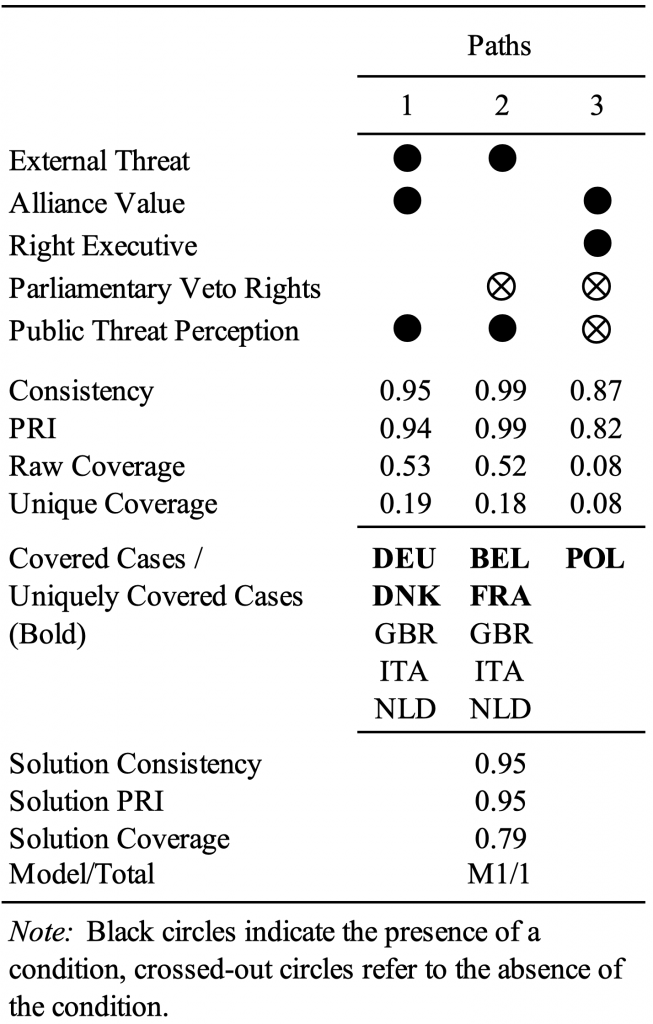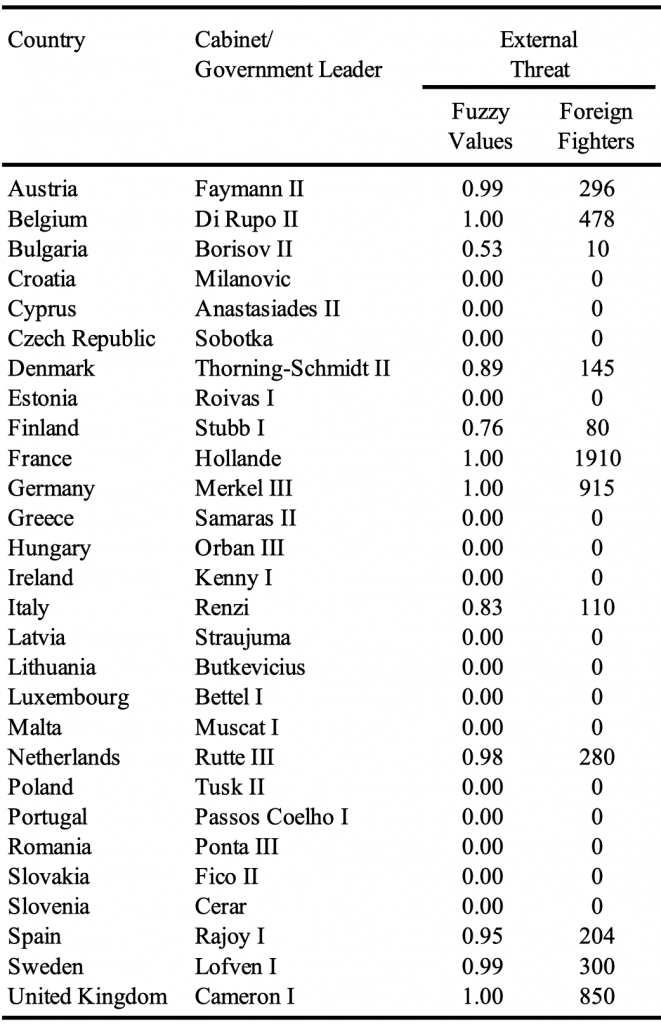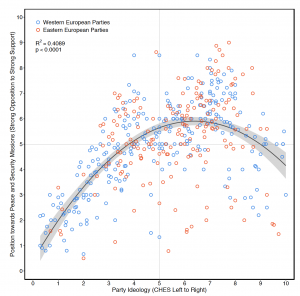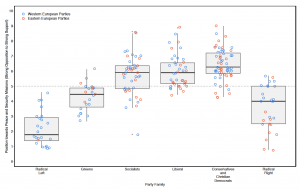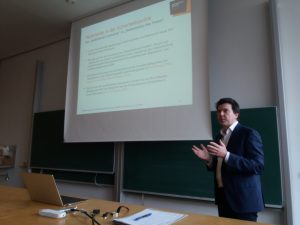Special Forum, Contemporary Security Policy
Contemporary Security Policy (CSP) has published a Special Forum on “The Politics of Multinational Military Operations”, guest edited by Patrick A. Mello (University of Erfurt) and Stephen M. Saideman (Carleton University). The special forum contains contributions from Gunnar Fermann (Norwegian University of Science and Technology), Per Marius Frost-Nielsen (Norwegian University of Science and Technology), Olivier Schmitt (University of Southern Denmark), Daan Fonck (Katholieke Universiteit Leuven), Tim Haesebrouck (Ghent University), Yf Reykers (Katholieke Universiteit Leuven), Stéfanie von Hlatky (Queen’s University), Justin Massie (Université du Québec à Montréal), and Kathleen J. McInnis (Congressional Research Service). CSP is a peer reviewed journal published by Taylor & Francis. The journal is indexed in the Social Science Citation Index, expecting its first Impact Factor for June/July 2019 (International Relations). CSP has a Scopus CiteScore of 1.07 (2017) and is ranked in the first quartile in Political Science & International Relations [more information].
Introduction to the Special Forum:
Mello, Patrick A., and Stephen M. Saideman (2019) The Politics of Multinational Military Operations, Contemporary Security Policy 40 (1), https://doi.org/10.1080/13523260.2018.1522737 (Open Access)
Contributing Articles (in alphabetical order):
Fermann, Gunnar and Per Marius Frost-Nielsen (2019) Conceptualizing Caveats for Political Research, Contemporary Security Policy 40(1), https://doi.org/10.1080/13523260.2018.1523976
Fonck, Daan, Tim Haesebrouck and Yf Reykers (2019) Parliamentary Involvement, Party Ideology and Majority-Opposition Bargaining: Belgian Participation in Multinational Military Operations, Contemporary Security Policy 40(1), https://doi.org/10.1080/13523260.2018.1500819
Mcinnis, Kathleen J. (2019) Varieties of Defection Strategies from Multinational Military Operations: Insights from Operation Iraqi Freedom, Contemporary Security Policy 40(1), https://doi.org/10.1080/13523260.2018.1506964
Mello, Patrick A. (2019) National Restrictions in Multinational Military Operations: A Conceptual Framework, Contemporary Security Policy 40(1), https://doi.org/10.1080/13523260.2018.1503438 (Open Access)
Schmitt, Olivier (2019) More Allies, Weaker Missions? How Junior Partners Contribute to Multinational Military Operations, Contemporary Security Policy 40(1), https://doi.org/10.1080/13523260.2018.1501999
Von Hlatky, Stéfanie and Justin Massie (2019) Ideology, Ballots, and Alliance: Canadian Participation in Multinational Military Operations, Contemporary Security Policy 40(1), https://doi.org/10.1080/13523260.2018.1508265
